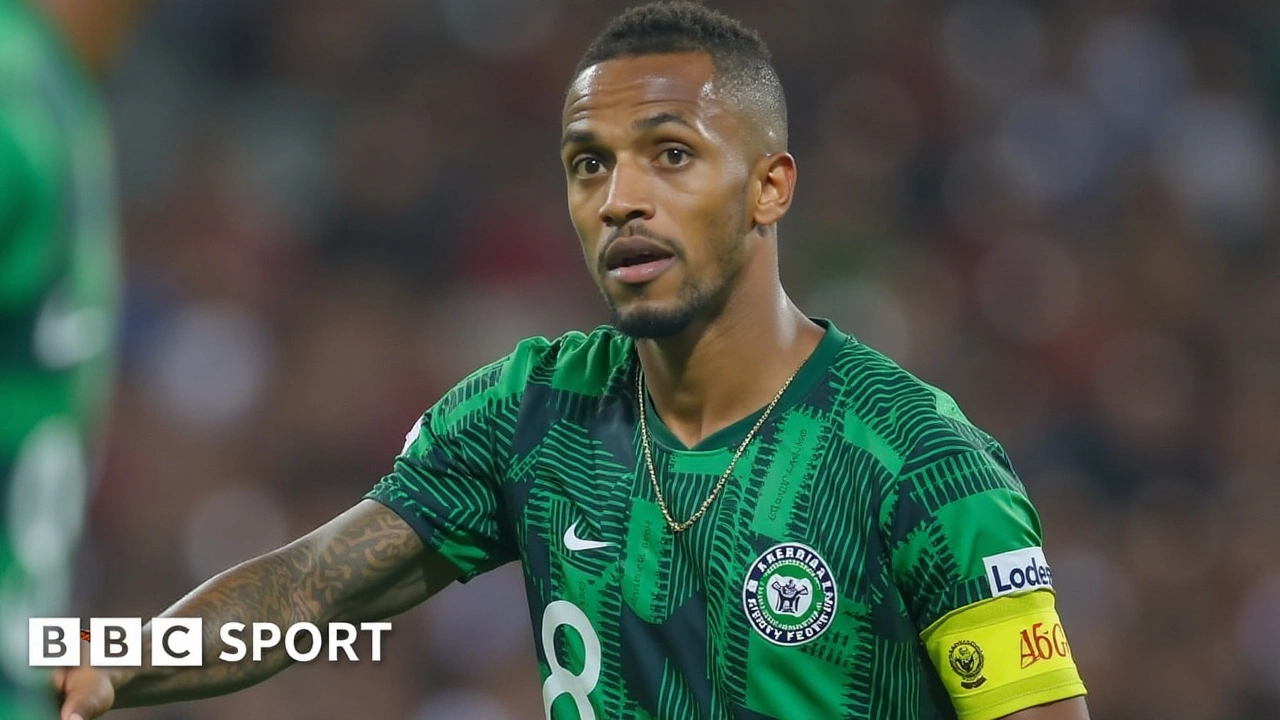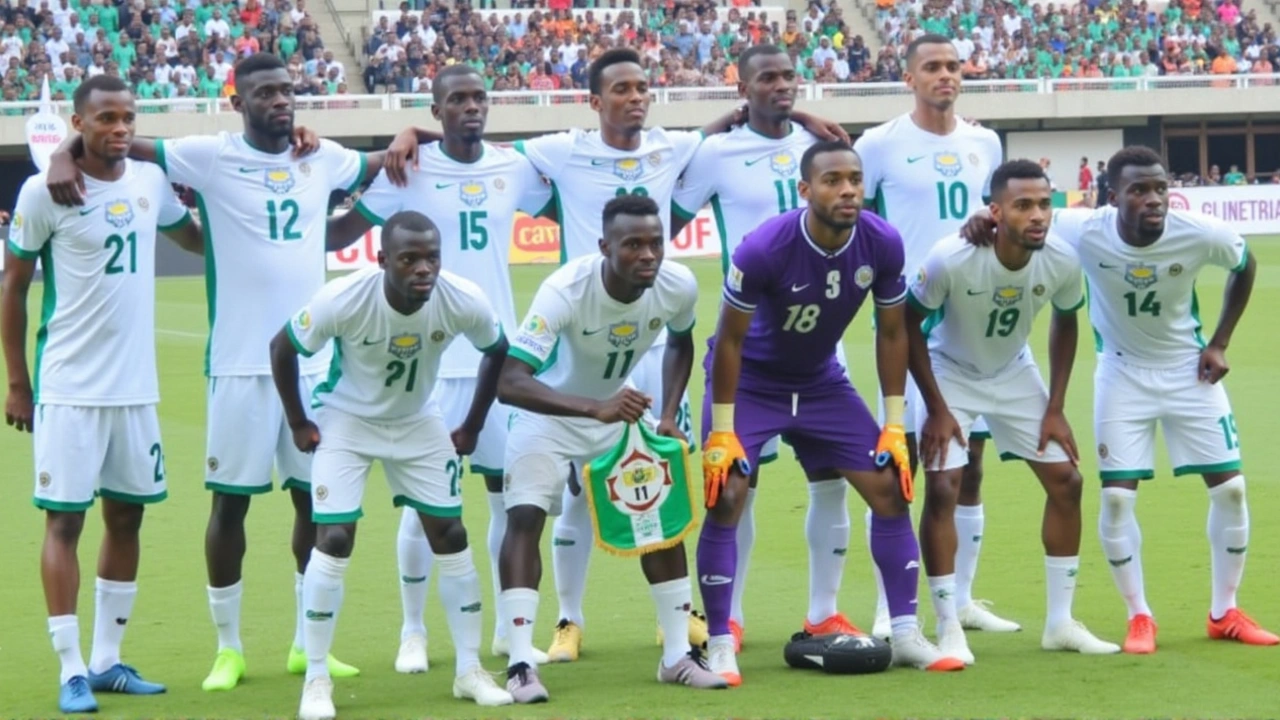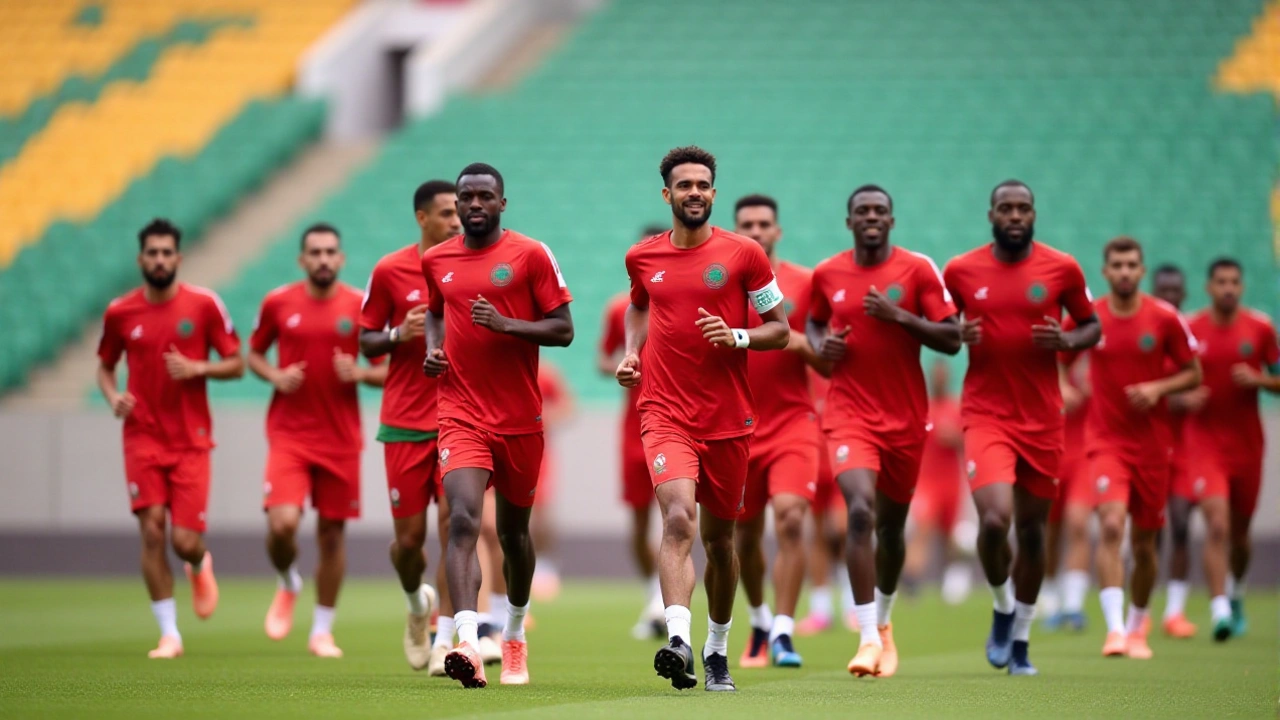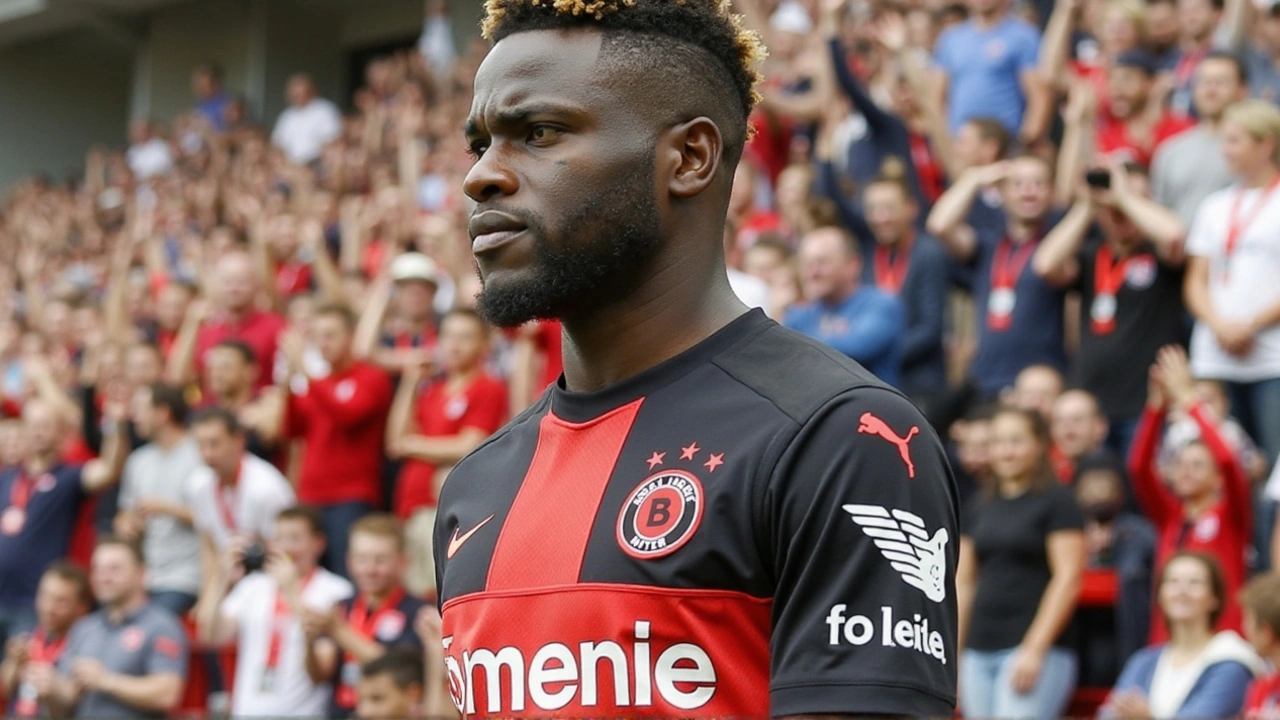Growing Concerns for Player Safety in International Sports
With international sporting events often bringing countries together in a display of athleticism and camaraderie, there are times when off-field issues cast a shadow over the games themselves. One such incident has arisen as Bayer Leverkusen, a prominent club in the Bundesliga, has issued a statement of concern for their striker, Victor Boniface, regarding his safety during the Nigeria vs Libya fixture. This concern stems from reports of Boniface’s unease about the treatment he and his teammates have received upon arrival in Libya, ahead of what was anticipated to be a straightforward international engagement.

Bayer Leverkusen's Role and Responsibility
Bayer Leverkusen's appeal to Boniface is not just an act of empathy towards their player but also a reflection of the club's responsibility towards its athletes' welfare. Boniface, an emerging star in European football, is expected to play a crucial role in Nigeria’s side. The club's apprehension underscores a broader dilemma faced by clubs when their players are on international duty—balancing the pride of having representatives in national teams with the constant responsibility of monitoring their safety and well-being. The club's statement on Monday highlighted the urgency they feel, prioritizing Boniface's safety due to potentially volatile conditions in Libya.
The Context of Libya's Current Climate
Libya, over the past decade, has been a nation in flux, struggling with internal strife and security challenges since the toppling of its longstanding regime. Such conditions can significantly impact visiting entities, including sports teams, which are vulnerable to the uncertainties present. With Boniface’s concerns brought into the spotlight, it’s crucial to understand the wider implications of hosting international sports in regions undergoing such tribulations.
Impact on Players and Team Dynamics
Boniface’s situation not only raises questions regarding individual safety but also poses challenges for team dynamics. When players are confronted with safety fears, it inevitably affects their performance on the field. Psychological distractions stemming from safety threats can hamper the team’s cohesion and focus, crucial elements in international matches. The Nigerian team, while rallying around Boniface, must prepare to perform amid these external disruptions.

Possible Actions and the Way Forward
Clubs like Bayer Leverkusen, upon identifying such concerns, often seek to liaise with national federations and relevant authorities to ensure adequate safety measures are enforced. Collaborative efforts between clubs, federations, and, if necessary, international bodies like FIFA, could lead to heightened protocols, adjustments to travel logistics, or even considerations for alternate venues. Ensuring player safety is a priority that transcends sporting rivalries, stressing that the welfare of athletes should never be compromised.

Conclusion: Beyond the Pitch
In the ever-evolving landscape of international sports, it’s imperative for all stakeholders to prioritize safety without compromising the spirit of competition. Victor Boniface’s predicament serves as a reminder that the world of sports cannot insulate itself from geopolitical realities. Bayer Leverkusen’s proactive approach not only protects their investments but reinforces a much-needed dialogue on safety and player welfare. As Boniface prepares to don his national jersey, the reminder of equitable treatment, safety, and respect echoes far beyond the pitch, affirming commitments to uphold these tenets in sports worldwide.

16 Responses
Clubs must prioritize player safety above all else, and Bayer Leverkusen is doing exactly that.
The security apparatus in Libya is a manufactured nightmare!!! They are engineering a narrative to destabilize African football initiatives!!! Every convoy, every checkpoint is an orchestrated theater of fear, designed to keep players in perpetual anxiety!!!
The plight of Victor Boniface underscores a timeless tension between sport and geopolitics. When a player steps onto foreign soil, he carries not just a ball but the weight of national pride. That weight becomes a philosophical burden when the host nation is mired in conflict. Safety is not a luxury; it is an ethical imperative that transcends club loyalties. Bayer Leverkusen’s intervention is a manifestation of the social contract between institutions and individuals. The club is acknowledging that the human body is not merely a commodity for performance metrics. In a world where borders shift like tectonic plates, the athlete becomes an ambassador of resilience. Yet resilience should not be demanded at the expense of personal security. The broader lesson is that international sport cannot be insulated from the realities that shape human existence. If federations ignore these signals, they risk eroding trust between players and their governing bodies. Moreover, fans deserve to witness contests unmarred by off‑field fear. The moral calculus demands that every stakeholder act with foresight and compassion. By voicing concern, Bayer Leverkusen sets a precedent that could ripple across leagues. It invites a re‑examination of how travel logistics are managed in volatile regions. Ultimately, the safety of a single striker may become the catalyst for systemic reform.
We appreciate the club’s proactive stance and recognize the psychological toll such uncertainty can exact on a player. The Nigerian federation should coordinate closely with security experts to mitigate any lingering anxieties. It is essential that Boniface receives unequivocal assurance before stepping onto the pitch. A measured, transparent plan will preserve both his well‑being and the team’s competitive focus.
Perhaps the clubs could establish a joint safety protocol, sharing intelligence and resources to safeguard athletes in high‑risk venues.
It is absolutely astounding how often the sporting world ignores the ominous undercurrents of geopolitical unrest, preferring instead to cling to a naive illusion of escapism. The notion that a player can simply be handed a passport and expected to thrive in a war‑torn landscape is a gross miscalculation. One must not overlook the fact that every checkpoint, every security detail, becomes a stage for potential disaster, and the onus falls on the clubs to anticipate these variables. Bayer Leverkusen’s communiqué, while commendable on the surface, fails to address the systemic failure of governing bodies to enforce rigorous safety standards. The absence of a coherent, enforceable framework is a glaring omission that emboldens negligent practices. Moreover, the psychological ramifications of such an environment are profound, seeping into performance metrics in insidious ways. Athletes are not machines; they are sentient beings whose mental health is as critical as their physical conditioning. Ignoring the mental strain inflicted by a volatile backdrop undermines the integrity of the competition itself. It is imperative that stakeholders, from national federations to international councils, convene to devise a robust contingency plan. Such a plan must include clear evacuation protocols, transparent communication channels, and a dedicated liaison officer for each traveling party. Only through meticulous preparation can we hope to preserve the sanctity of the beautiful game amidst chaotic realities.
Set up a real‑time security feed and a contingency travel route; that will cut the risk dramatically.
Bridging the gap between club responsibility and national duty requires patience, dialogue, and a genuine commitment to player welfare.
I concur with the sentiment expressed; a structured dialogue between all parties will undoubtedly enhance protection measures.
It is a quintessential exemplum of how modern football must navigate the labyrinthine interplay of sport, politics, and moral obligation.
Ah, the noble pursuit of safeguarding a striker-how revolutionary-one might as well expect the same vigilance for a freshly baked croissant.
They’re hiding the real agenda, man-this whole “safety” spiel is just a cover for some shadowy power play.
Let’s keep the conversation constructive and focus on actionable safety steps.
When the pitch becomes a battlefield, the soul of the game is at stake.
Wow!!! This whole situation is a rollercoaster of emotions!!! 🎢⚽️ We must rally together, support Boniface, and demand top‑tier security for every player!!! 🙏💪
Isn't it fascinating how a football match can become a cultural litmus test for international relations? When clubs start issuing safety advisories, they're not just protecting assets-they're making a statement about global interconnectedness. Yet some fans treat these warnings as mere inconvenience, forgetting that sport is a microcosm of society. In the end, the true victory lies in ensuring that the beautiful game remains, well, beautiful.